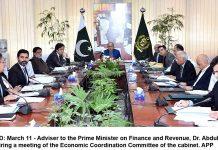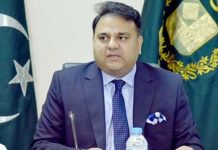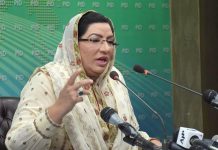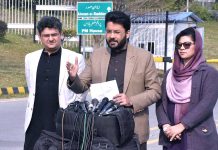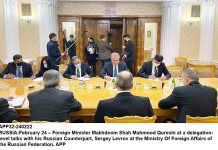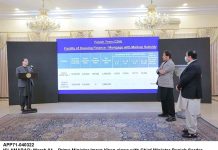
“India has been attempting to have Pakistan pushed into the black list. If this were to occur, you know better than I, the effects it will have on the economy,” the foreign minister told a press briefing here at Multan Circuit House. “The government has taken timely administrative and legislative steps to step out of the grey list and once again have Pakistan placed on the white list,” he said.
He said there are eight laws for which consultation talks were held with the law ministry, finance ministry, Financial Monitoring Unit (FMU) and experts dealing with money laundering and counter-terrorism issues. On the prime minister’s directives, the opposition has been taken into confidence, he said. A joint committee of 24 people has been formed which includes various factions of the opposition as well as representatives of the government. It contains both members of the National Assembly and the Senate. The committee will review the legislation.
“The prime minister wishes that the opposition be taken into confidence on this matter of national importance […] time is of the essence here. We must act timely so that the Asia Pacific Group (APG), of which Pakistan is a member, can place the government’s practical steps before the [FATF] plenary which will then decide whether the obligations Pakistan was subjected to were fulfilled or not,” he said.
Qureshi said one law pertaining to the National Accountability Bureau has also been drafted. “The opposition has expressed its reservations about the NAB law,” he said. “We are prepared to make changes in the NAB law,” he said, adding that the PPP and PML-N both had both had an opportunity but each failed to amend the NAB laws. “All the bills have been sent to the opposition (parties), including the one on NAB law,” he said. “We do not have the intention to use (the law) for witch-hunting,” he said, in an apparent reference to opposition’s reservations regarding the accountability watchdog’s methods. He said that in a session with all the stakeholders on Monday, the legislative process will be discussed.
The foreign minister also briefed the media on the upcoming visit on Sunday by United Nations General Assembly President Tijjani Muhammad-Bande. The UNGA president is arriving after a formal invitation by the government was extended to him, Qureshi said, adding that the government will apprise him of the atrocities in occupied Kashmir by Indian security forces. He said that ceasefire violations along the Line of Control by Indian forces continue unabated. “Even in the coronavirus pandemic, they (India) have not spared the oppressed Kashmiris,” he said.
Speaking about the coronavirus situation in the country, Qureshi said some experts had initially criticised the government’s management of the health crisis and predicted that there could be 1.2 million infections and nearly 50,000 deaths from Covid-19 by July 30. “But Allah kept Pakistan safe and neither of the projections came true,” he said, adding that the government regrets the loss of life that has taken place due to the virus. “Today our ‘smart lockdown’ strategy proved to be successful … and numerous nations are following the vision outlined by Prime Minister Imran Khan,” he claimed, noting that the country’s infection rate, death toll and pressure on hospitals are steadily declining.
He said although Pakistan is close to flattening its Covid-19 curve, two ‘tests’ of Eidul Azha and Muharram remain that could have an impact on the spread of the disease. He said the chances of marriage halls, schools and restaurants being reopened will increase if the country avoids a resurgence of the virus during Eid and Muharram.
Qureshi said the PTI government has made progress regarding its plan of creating the South Punjab province. He said the ruling party is of the view that it is not possible to manage a province of 120 million people from a single centre. He said there are obstacles in Punjab regarding creating a separate province, but stressed that the PTI is ‘continuing to pursue its plan’. He said the government desires that matters concerning police, health, education and local government be resolved in southern Punjab instead of its residents having to go to Lahore. He requested Punjab Chief Minister Usman Buzdar to examine the file containing proposed amendments to the relevant rules of business and give them a ‘practical shape’.

